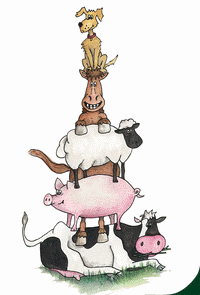New evidence suggests that entering training and racing at two years of age promotes a longer and more successful Thoroughbred racing career
New research, published this month in the Equine Veterinary Journal (EVJ), has suggested that exercise early in life has a positive effect on musculoskeletal health and may have a positive impact on the future racing careers of Thoroughbreds.
The study1 looked at the association of two-year-old training milestones with career length and racing success in a sample of 4683 Thoroughbred horses in New Zealand.
Retrospective data were obtained from the Thoroughbred foal crop born in 2001/2002 and three training milestones were observed: registration with a trainer, trialling to assess race potential and racing. The association of the training milestones with career length was measured by assessing the number of race starts and the number of years raced.
The horses that raced as two-year-olds had significantly more race starts during their careers from three-years-old onwards than those first raced as three-year-olds or older. Horses that raced as two-year-olds had significantly more years racing. Horses registered with a trainer, trialled or raced as two-year-olds were more likely to have won or been placed in a race than those that achieved these milestones as three-year-olds or older. In addition, horses that first trialled and raced as two-year-olds had greater total earnings than those that first trialled or raced at a later age.
Jasmine Tanner of the Institute of Veterinary, Animal and Biomedical Sciences, Massey University, Palmerston North, New Zealand, who instigated the study, concluded: “Musculoskeletal injuries are one the main causes of wastage in racing and days lost from training. This early study indicates that horses in training or racing as two-year-olds may have better musculoskeletal health throughout life than those first in training or racing at a later age. This could have a positive impact on their future success in racing. If this is indeed the case then it may be possible to manipulate the initiation and structure of race training to reduce the risk of such injuries in the future.”
1 The association of two-year-old training milestones with career length and racing success in a sample of Thoroughbred horses in New Zealand JC Tanner, CW Rogers, EC Firth Equine Veterinary Journal. doi: 10.1111/j.2042-3306.2011.00534.x

